Family & Children Health › Get Pregnancy › Get Pregnant After 35 (and 40!)
When I was 35, unmarried but still hoping for children someday, I asked my doctor if I should be concerned about my chances of getting pregnant as I got older. Not at all, he assured me: Women are having children into their 40s nowadays. You have plenty of time, he said.
That was more than ten years ago, just as a boom in "late-timing" motherhood began. Birthrates for U.S. women in their 30s—and 40s and 50s—have increased dramatically since then. (For a rundown on the statistics, see "The Aging of Pregnancy in America.") Celebrity culture has kept pace featuring pictures of 40-plus actresses, such as Geena Davis and Madonna, cuddling their newborns. The news isn't that middle-aged women are having children—more women had children after 40 in the 1960s. But few of those women were having their first child. For reasons that aren't clear, it is far easier to have your third, or eighth, child after 40 than your first. The real news is that so many women are now having their first child late in life.
My doctor wasn't incorrect in his early '90s optimism about later first-time pregnancy—it does happen more these days. At the same time, the truth is that more older would-be moms are having trouble getting pregnant, more are resorting to expensive, lengthy infertility treatments, and many are eventually discovering that they will not bear their own children after all. The number of infertility procedures performed between 1996 and 1998 jumped 27 percent. The number of childless women age 40 to 44 has doubled in the past 20 years. A survey conducted by Sylvia Ann Hewlett and described in Creating a Life: Professional Women and the Quest for Children (Talk Miramax, 2002) found that 42 percent of high-achieving women in corporate America were still childless after age 40, a majority of them not by plan. The problem isn't limited to the business world: Recent studies suggest that women in academia may be even more likely to be childless than their corporate sisters.
Though some of these women have clearly made a choice between family and their professions—or are unwilling to undertake parenthood without a partner—most have not made such choices. Rather, they have been caught out by biology. It takes several years to complete professional schooling and to establish a career. But if a woman waits for a suitable time in her career before having children, she may find herself in a race between her own declining fertility and the passage of time.
Assessing Your Fertility
In the past few years, it has become increasingly clear that reproductive biology harshly separates older women into two groups: women who can get pregnant without a lot of medical intervention, but whose ability to sustain a pregnancy is more compromised than their fertility; and women whose fertility has dipped below a critical line and who require interventions, such as assisted reproductive technology (ART). For the first group, there is good news: Huge strides have been made in troubleshooting miscarriages, maintaining pregnancies, handling labor complications, and caring for preterm infants—all important issues in late-timing pregnancy.
For the second group, the news is much more grim. According to figures from the Mayo Clinic, a woman's fertility is highest around age 20. Typically, fertility drops 20 percent after age 30, 50 percent after age 35, and 95 percent after age 40. After age 40, reproductive function diminishes drastically: Half of a woman's eggs are chromosomally abnormal at age 40; by 42, that figure is 90 percent. And should an older woman get pregnant, her chance of miscarriage increases to more than 50 percent by her late 40s. Even the most advanced fertility treatments can't reverse such reproductive decline. As recently as a decade ago, fertility specialists were much more optimistic about first pregnancies at midlife, given improved overall fitness and advances in reproductive medicine. Now these specialists—and a generation of women—have found instead that certain aspects of fertility are much more intractable than they thought.
Optimizing Odds In Your Late 30s
One month from age 39, I became pregnant on my honeymoon. I miscarried at 19 weeks and, ten months later, miscarried again at 16 weeks. My doctor sent my husband and me to a fertility specialist, who uncovered an underactive thyroid, cleaned out fetal tissue from one of the earlier losses, and made a controversial diagnosis—embryotoxic factor—in which theoretically my immune system fought off pregnancy as a foreign invader. The specialist prescribed progesterone supplements to boost my body's ability to hold on to a subsequent pregnancy, explaining that no one knew exactly why the progesterone helped. You will have your child, he promised us at our last appointment. That fall, when I was 41, I discovered I was pregnant again. Between thyroid pills, progesterone, and sheer good fortune, that pregnancy lasted. Our daughter, Ursula, was born on June 1, 1998.
Women in their late 30s can do much to improve their chances of getting pregnant. The fertility odds are workable: About two-thirds of women ages 35 to 39 can become pregnant within a year. Given these odds, women can take a number of steps to improve their fertility. Some are simple common sense: Stop smoking; reduce or eliminate use of alcohol and caffeine; maintain an appropriate weight; reduce stress. Even moderate alcohol use—as few as five drinks a week—can impair fertility. Likewise, consuming more than two cups of caffeinated coffee a day has been associated with lowered conception and increased miscarriage.
Naturopath Bonnie Nedrow, ND, LM, who teaches at Bastyr University near Seattle, encourages her midlife patients to focus on what they can control. "We are looking for optimal health, which is more than functional health," she says. "A woman's body will wait to make a baby until things are optimal." Nedrow gives each patient a hormone work-up, checking levels of progesterone, estrogen, thyroid hormones, and others. Then she advises them about cleansing the liver, which processes the majority of the body's hormones; balancing the diet; stabilizing menstrual cycles; and reducing both the woman's and her partner's stress levels.
A stable, predictable menstrual cycle is an important indicator of good reproductive health. "Many women have a long history of taking birth control pills," says Jana Nalbandian, ND, a Bastyr University colleague of Nedrow's. "When a woman decides she wants to get pregnant, her system is used to being regulated by hormones introduced into, rather than released by, the body. For certain women, it can take six months to a year for the body to regulate on its own."
A woman's weight also affects the regularity and effectiveness of her cycles. According to the Mayo Clinic, body fat levels that are 10 percent to 15 percent above or below normal can throw off a woman's reproductive cycles. Being overweight can mean estrogen overload. "We live in an estrogen-dominant world," says Nalbandian, pointing to the hormones used in meat- and dairy-products production, as well as the "estrogenic effect" of some pesticides. Because of these excess hormones, even women who aren't overweight may be at risk for estrogen overload and resulting fertility problems, Nedrow says.
Both doctors encourage their patients to avoid processed and sugar-rich foods and to replace them with organic, hormone-free, and pesticide-free foods. Nalbandian recommends eating beets, leafy greens, artichokes, and carrots to cleanse the liver and remove excess estrogen from the system. Nedrow suggests a daily serving of four ounces of fish, which is rich in essential fatty acids, to aid the digestive system. "Our grandmothers were right about cod liver oil," she says.
Women who are underweight also are at risk for menstrual irregularity and infertility. Women who adhere to intense exercise regimes share some of these risks. Strict vegetarians may experience fertility problems if they don't get enough vitamin B12, zinc, iron, and folic acid in their diets.
Luckily, most of these problems can be resolved through changes in nutrition. "If you are a fairly healthy 35-year-old woman with a healthy reproductive system," says Nalbandian, "you should be able to improve your chances of becoming pregnant simply through diet and lifestyle choices."
Additionally, Nalbandian advises using herbs to support the natural reproductive process, such as chaste tree berry (Vitex agnus castus) for regulating cycles, and herbal teas, such as raspberry leaf (Rubus idaeus), to tone the uterus. To move bile through the liver, she recommends dandelion root (Taraxacum officinale), a gentle, nontoxic cleanser. But because many herbs can contribute to miscarriage, once a woman becomes pregnant, Nalbandian warns, she must stop taking all herbal preparations until she consults her doctor.
Acupuncture may also be effective. Earlier this year, German researchers at the Christian Lauritzen Institute announced that acupuncture-treated subjects increased their success rate for in vitro fertilization by nearly 50 percent (Fertility and Sterility, 2002, vol. 77, no. 4). By relaxing the uterus, they theorized, acupuncture helps the uterine lining become more receptive to an embryo.
Throwing The Dice After 40
My husband and I felt time working against us in our hope for a second child. Ursula passed her third birthday without a sibling. Wanting to avoid interventions such as in vitro fertilization, but recognizing that my fertility was surely waning, we gave ourselves until the end of 2001 to get pregnant.
For women over 40, the reproductive die has largely been cast. Genetics plays a heavy-handed role in the ability of a woman over 40 to become pregnant. If her eggs, which have been in her body since before her birth, remain viable in sufficient numbers, she should be able to become pregnant. If she does not have enough "ovarian reserve," she will not become pregnant without egg donation.
In a clinical report issued in January 2002, the American Society for Reproductive Medicine (ASRM) advised doctors to screen women over 35 for ovarian reserve. Typically, this is done by measuring serum basal levels of follicle-stimulating hormone (FSH) and estradiol, two of the so-called pregnancy hormones. Subtle changes in levels of these hormones are associated with a reduced ability to conceive—and, not surprisingly, also are associated with perimenopause, when a woman's hormone levels shift away from reproduction. "Genetics may predispose some women to early increased FSH levels and others to late menopause," says Judy Stern, PhD, an embryologist at Dartmouth-Hitchcock Hospital in Lebanon, New Hampshire. My grandmother had her second child at age 44; a great-aunt had her fourth child at 46. Was there hope for me?
Even if a woman can become pregnant past 40, it's likely to take her a year or more longer to conceive than a younger woman. For one thing, the cervical mucus that aids sperm in fertilization usually lasts for four days in a woman in her 20s, Nedrow says, but for less time as she grows older. "By 40, it's down to less than a day," she says. Even something as seemingly benign as taking antihistamines, which dry up all mucous membranes, she warns, can decrease an older woman's chances for pregnancy.
The best advice: Optimize your individual chance of getting pregnant by optimizing your health in general—and see a trusted health care provider as early as possible in your attempt to get pregnant. "Due to the shorter time frame, I tend to be more aggressive with clients over 40," Nedrow says. "I'm likely to order more tests, use progesterone supportively, and jump in there with herbs right away."
Never Say Never Both naturopaths can cite many examples of women in their late 30s and beyond who have followed their holistic, healthy living suggestions and become pregnant. But they also caution that where there are underlying fertility issues, more intervention may be needed, and pregnancy may be achieved with more difficulty, or not at all. At some point, older women may find themselves confronted with assisted reproductive technology's poor success rates—a 43-year-old woman using ART has a 3 percent chance of delivering a baby (women in their early 30s who use ART have a better than 30 percent chance)—and the knowledge that time is running out.
When New Year 2002 came, Jim and I counted our blessings as a single-child family, forgetting that we had one more cycle to check. Our son, Virgil, was probably conceived in the final days of 2001, just before deadline. He arrived early, induced at 35 weeks after placental abruption—something I, at age 46, was at increased risk for—and was born perfectly healthy on August 22, 2002.
Genetics, luck, or physical good fortune allowed me to have two children in my 40s. But, I am certain, no doctor today would assure a 35-year-old woman that it was wise to wait another five years, or more, before trying to get pregnant. More likely, that doctor would give her the harder facts and statistics that we know now. Then, if she chose, they would work together to devise a strategy for seeking the miracle of children.
While researching this article, Kristen Laine joined an elite group—the approximately 4,000 U.S. women each year who give birth after 45.
Article Source:http://deliciouslivingmag.com

That was more than ten years ago, just as a boom in "late-timing" motherhood began. Birthrates for U.S. women in their 30s—and 40s and 50s—have increased dramatically since then. (For a rundown on the statistics, see "The Aging of Pregnancy in America.") Celebrity culture has kept pace featuring pictures of 40-plus actresses, such as Geena Davis and Madonna, cuddling their newborns. The news isn't that middle-aged women are having children—more women had children after 40 in the 1960s. But few of those women were having their first child. For reasons that aren't clear, it is far easier to have your third, or eighth, child after 40 than your first. The real news is that so many women are now having their first child late in life.
My doctor wasn't incorrect in his early '90s optimism about later first-time pregnancy—it does happen more these days. At the same time, the truth is that more older would-be moms are having trouble getting pregnant, more are resorting to expensive, lengthy infertility treatments, and many are eventually discovering that they will not bear their own children after all. The number of infertility procedures performed between 1996 and 1998 jumped 27 percent. The number of childless women age 40 to 44 has doubled in the past 20 years. A survey conducted by Sylvia Ann Hewlett and described in Creating a Life: Professional Women and the Quest for Children (Talk Miramax, 2002) found that 42 percent of high-achieving women in corporate America were still childless after age 40, a majority of them not by plan. The problem isn't limited to the business world: Recent studies suggest that women in academia may be even more likely to be childless than their corporate sisters.
Though some of these women have clearly made a choice between family and their professions—or are unwilling to undertake parenthood without a partner—most have not made such choices. Rather, they have been caught out by biology. It takes several years to complete professional schooling and to establish a career. But if a woman waits for a suitable time in her career before having children, she may find herself in a race between her own declining fertility and the passage of time.
Assessing Your Fertility
In the past few years, it has become increasingly clear that reproductive biology harshly separates older women into two groups: women who can get pregnant without a lot of medical intervention, but whose ability to sustain a pregnancy is more compromised than their fertility; and women whose fertility has dipped below a critical line and who require interventions, such as assisted reproductive technology (ART). For the first group, there is good news: Huge strides have been made in troubleshooting miscarriages, maintaining pregnancies, handling labor complications, and caring for preterm infants—all important issues in late-timing pregnancy.
For the second group, the news is much more grim. According to figures from the Mayo Clinic, a woman's fertility is highest around age 20. Typically, fertility drops 20 percent after age 30, 50 percent after age 35, and 95 percent after age 40. After age 40, reproductive function diminishes drastically: Half of a woman's eggs are chromosomally abnormal at age 40; by 42, that figure is 90 percent. And should an older woman get pregnant, her chance of miscarriage increases to more than 50 percent by her late 40s. Even the most advanced fertility treatments can't reverse such reproductive decline. As recently as a decade ago, fertility specialists were much more optimistic about first pregnancies at midlife, given improved overall fitness and advances in reproductive medicine. Now these specialists—and a generation of women—have found instead that certain aspects of fertility are much more intractable than they thought.
Optimizing Odds In Your Late 30s
One month from age 39, I became pregnant on my honeymoon. I miscarried at 19 weeks and, ten months later, miscarried again at 16 weeks. My doctor sent my husband and me to a fertility specialist, who uncovered an underactive thyroid, cleaned out fetal tissue from one of the earlier losses, and made a controversial diagnosis—embryotoxic factor—in which theoretically my immune system fought off pregnancy as a foreign invader. The specialist prescribed progesterone supplements to boost my body's ability to hold on to a subsequent pregnancy, explaining that no one knew exactly why the progesterone helped. You will have your child, he promised us at our last appointment. That fall, when I was 41, I discovered I was pregnant again. Between thyroid pills, progesterone, and sheer good fortune, that pregnancy lasted. Our daughter, Ursula, was born on June 1, 1998.
Women in their late 30s can do much to improve their chances of getting pregnant. The fertility odds are workable: About two-thirds of women ages 35 to 39 can become pregnant within a year. Given these odds, women can take a number of steps to improve their fertility. Some are simple common sense: Stop smoking; reduce or eliminate use of alcohol and caffeine; maintain an appropriate weight; reduce stress. Even moderate alcohol use—as few as five drinks a week—can impair fertility. Likewise, consuming more than two cups of caffeinated coffee a day has been associated with lowered conception and increased miscarriage.
Naturopath Bonnie Nedrow, ND, LM, who teaches at Bastyr University near Seattle, encourages her midlife patients to focus on what they can control. "We are looking for optimal health, which is more than functional health," she says. "A woman's body will wait to make a baby until things are optimal." Nedrow gives each patient a hormone work-up, checking levels of progesterone, estrogen, thyroid hormones, and others. Then she advises them about cleansing the liver, which processes the majority of the body's hormones; balancing the diet; stabilizing menstrual cycles; and reducing both the woman's and her partner's stress levels.
A stable, predictable menstrual cycle is an important indicator of good reproductive health. "Many women have a long history of taking birth control pills," says Jana Nalbandian, ND, a Bastyr University colleague of Nedrow's. "When a woman decides she wants to get pregnant, her system is used to being regulated by hormones introduced into, rather than released by, the body. For certain women, it can take six months to a year for the body to regulate on its own."
A woman's weight also affects the regularity and effectiveness of her cycles. According to the Mayo Clinic, body fat levels that are 10 percent to 15 percent above or below normal can throw off a woman's reproductive cycles. Being overweight can mean estrogen overload. "We live in an estrogen-dominant world," says Nalbandian, pointing to the hormones used in meat- and dairy-products production, as well as the "estrogenic effect" of some pesticides. Because of these excess hormones, even women who aren't overweight may be at risk for estrogen overload and resulting fertility problems, Nedrow says.
Both doctors encourage their patients to avoid processed and sugar-rich foods and to replace them with organic, hormone-free, and pesticide-free foods. Nalbandian recommends eating beets, leafy greens, artichokes, and carrots to cleanse the liver and remove excess estrogen from the system. Nedrow suggests a daily serving of four ounces of fish, which is rich in essential fatty acids, to aid the digestive system. "Our grandmothers were right about cod liver oil," she says.
Women who are underweight also are at risk for menstrual irregularity and infertility. Women who adhere to intense exercise regimes share some of these risks. Strict vegetarians may experience fertility problems if they don't get enough vitamin B12, zinc, iron, and folic acid in their diets.
Luckily, most of these problems can be resolved through changes in nutrition. "If you are a fairly healthy 35-year-old woman with a healthy reproductive system," says Nalbandian, "you should be able to improve your chances of becoming pregnant simply through diet and lifestyle choices."
Additionally, Nalbandian advises using herbs to support the natural reproductive process, such as chaste tree berry (Vitex agnus castus) for regulating cycles, and herbal teas, such as raspberry leaf (Rubus idaeus), to tone the uterus. To move bile through the liver, she recommends dandelion root (Taraxacum officinale), a gentle, nontoxic cleanser. But because many herbs can contribute to miscarriage, once a woman becomes pregnant, Nalbandian warns, she must stop taking all herbal preparations until she consults her doctor.
Acupuncture may also be effective. Earlier this year, German researchers at the Christian Lauritzen Institute announced that acupuncture-treated subjects increased their success rate for in vitro fertilization by nearly 50 percent (Fertility and Sterility, 2002, vol. 77, no. 4). By relaxing the uterus, they theorized, acupuncture helps the uterine lining become more receptive to an embryo.
Throwing The Dice After 40
My husband and I felt time working against us in our hope for a second child. Ursula passed her third birthday without a sibling. Wanting to avoid interventions such as in vitro fertilization, but recognizing that my fertility was surely waning, we gave ourselves until the end of 2001 to get pregnant.
For women over 40, the reproductive die has largely been cast. Genetics plays a heavy-handed role in the ability of a woman over 40 to become pregnant. If her eggs, which have been in her body since before her birth, remain viable in sufficient numbers, she should be able to become pregnant. If she does not have enough "ovarian reserve," she will not become pregnant without egg donation.
In a clinical report issued in January 2002, the American Society for Reproductive Medicine (ASRM) advised doctors to screen women over 35 for ovarian reserve. Typically, this is done by measuring serum basal levels of follicle-stimulating hormone (FSH) and estradiol, two of the so-called pregnancy hormones. Subtle changes in levels of these hormones are associated with a reduced ability to conceive—and, not surprisingly, also are associated with perimenopause, when a woman's hormone levels shift away from reproduction. "Genetics may predispose some women to early increased FSH levels and others to late menopause," says Judy Stern, PhD, an embryologist at Dartmouth-Hitchcock Hospital in Lebanon, New Hampshire. My grandmother had her second child at age 44; a great-aunt had her fourth child at 46. Was there hope for me?
Even if a woman can become pregnant past 40, it's likely to take her a year or more longer to conceive than a younger woman. For one thing, the cervical mucus that aids sperm in fertilization usually lasts for four days in a woman in her 20s, Nedrow says, but for less time as she grows older. "By 40, it's down to less than a day," she says. Even something as seemingly benign as taking antihistamines, which dry up all mucous membranes, she warns, can decrease an older woman's chances for pregnancy.
The best advice: Optimize your individual chance of getting pregnant by optimizing your health in general—and see a trusted health care provider as early as possible in your attempt to get pregnant. "Due to the shorter time frame, I tend to be more aggressive with clients over 40," Nedrow says. "I'm likely to order more tests, use progesterone supportively, and jump in there with herbs right away."
Never Say Never Both naturopaths can cite many examples of women in their late 30s and beyond who have followed their holistic, healthy living suggestions and become pregnant. But they also caution that where there are underlying fertility issues, more intervention may be needed, and pregnancy may be achieved with more difficulty, or not at all. At some point, older women may find themselves confronted with assisted reproductive technology's poor success rates—a 43-year-old woman using ART has a 3 percent chance of delivering a baby (women in their early 30s who use ART have a better than 30 percent chance)—and the knowledge that time is running out.
When New Year 2002 came, Jim and I counted our blessings as a single-child family, forgetting that we had one more cycle to check. Our son, Virgil, was probably conceived in the final days of 2001, just before deadline. He arrived early, induced at 35 weeks after placental abruption—something I, at age 46, was at increased risk for—and was born perfectly healthy on August 22, 2002.
Genetics, luck, or physical good fortune allowed me to have two children in my 40s. But, I am certain, no doctor today would assure a 35-year-old woman that it was wise to wait another five years, or more, before trying to get pregnant. More likely, that doctor would give her the harder facts and statistics that we know now. Then, if she chose, they would work together to devise a strategy for seeking the miracle of children.
While researching this article, Kristen Laine joined an elite group—the approximately 4,000 U.S. women each year who give birth after 45.
Article Source:http://deliciouslivingmag.com
Article By: Kristen Laine
A Myth-Proof Guide to Getting Pregnant
How to get Pregnant Faster – Top Ten Tips
A Quick Guide On How To Get Pregnant
When is the best time to get pregnant?
How does baby aspirin help with trying to get pregnant?
Twenty things you should do before you try to get pregnant
Getting pregnant after the pill
Most Popular Tags
can I get pregnant at 39
,how to get pregnant at 39
, getting pregnant at 39, children after 35, can i get pregnant at 40, mss, , , , , , ,can a 40 year old woman get pregnant
, , , , , , ,can i still get pregnant at 40
, ,can a woman get pregnant at 40
, , , ,average time to get pregnant at 40
,how long does it take a 35 year old to get pregnant
, , , ,At what point does a woman s ability to become pregnant dramatically drop
, , ,is it possible to get pregnant at 40
,can a woman get pregnant after 40
, ,how long does it take to get pregnant at 39
,chances of getting pregnant at 39
,Is it possible to get pregnant at 39
, ,women having children after 40
, , ,Women Having Children after 35
, ,chances of getting pregnant at age 39
, , , , ,Most Read
New Articles
Most Viewed
Most Downloads
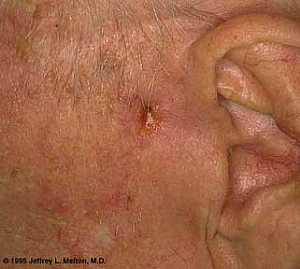 Basal Cell Carcinoma ("Rodent Ulcer" Type)
Basal Cell Carcinoma ("Rodent Ulcer" Type)
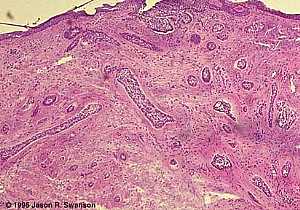 Basal Cell Carcinoma (Histology-Morpheaform Type)
Basal Cell Carcinoma (Histology-Morpheaform Type)
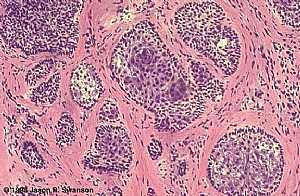 Basal Cell Carcinoma (Histology-Nodular Type - High power)
Basal Cell Carcinoma (Histology-Nodular Type - High power)
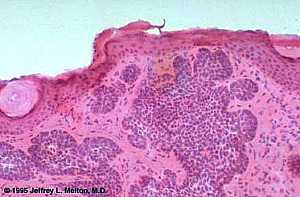 Basal Cell Carcinoma (Histology-Nodular Type- High power)
Basal Cell Carcinoma (Histology-Nodular Type- High power)
 Skin
Skin
 Nervous System -- Basic
Nervous System -- Basic
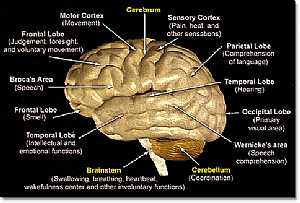 Brain anatomy
Brain anatomy
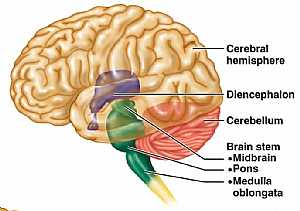 Brain anatomy
Brain anatomy
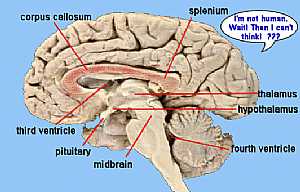 Brain anatomy
Brain anatomy
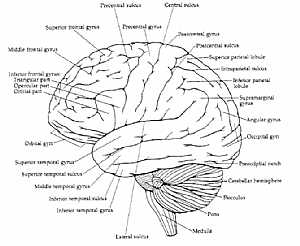 Brain anatomy
Brain anatomy
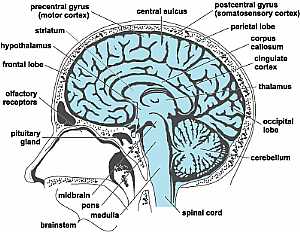 Head anatomy
Head anatomy
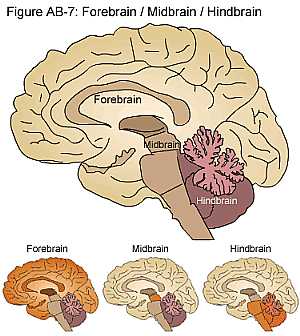 Brain anatomy
Brain anatomy
eDoctorOnline.com does not provide medical advice, diagnosis or treatment.
© Copyright 2001-2022 eDoctorOnline.com
© Copyright 2001-2022 eDoctorOnline.com

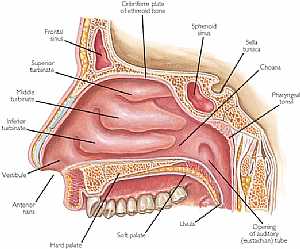 Nose anatomy
Nose anatomy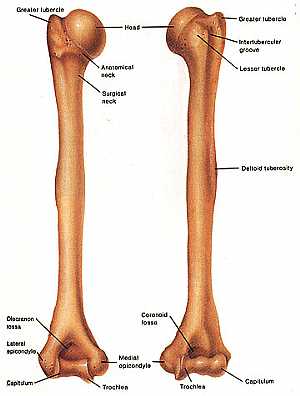 Humerus bone
Humerus bone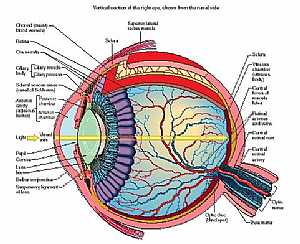 Eye anatomy
Eye anatomy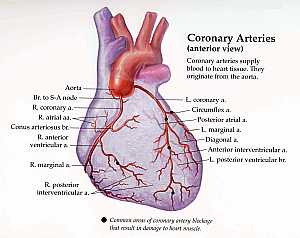 Coronary arteries anatomy
Coronary arteries anatomy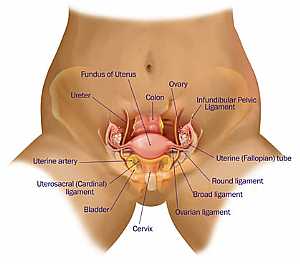 Female pelvic anatomy
Female pelvic anatomy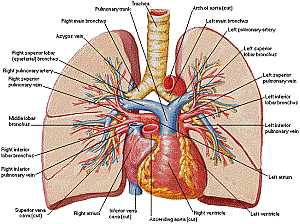 Heart and lung anatomy
Heart and lung anatomy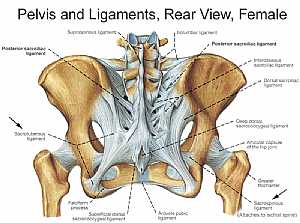 Bones and ligaments of the FEMALE Pelvis
Bones and ligaments of the FEMALE Pelvis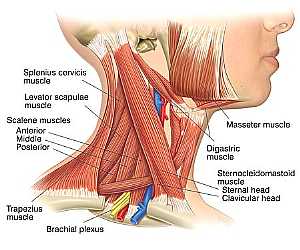 Neck Anatomy
Neck Anatomy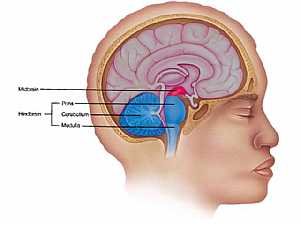 MidBrain anatomy
MidBrain anatomy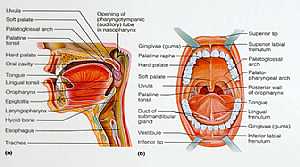 Oral Cavity
Oral Cavity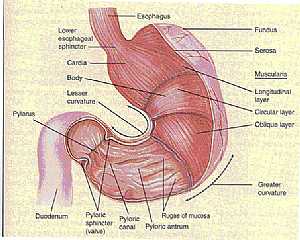 Stomach anatomy
Stomach anatomy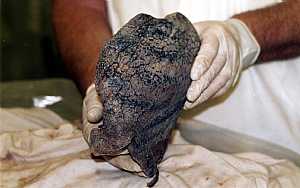 Lung anatomy
Lung anatomy Basal Cell Carcinoma ("Rodent Ulcer" Type)
Basal Cell Carcinoma ("Rodent Ulcer" Type) Basal Cell Carcinoma (Histology-Morpheaform Type)
Basal Cell Carcinoma (Histology-Morpheaform Type) Basal Cell Carcinoma (Histology-Nodular Type - High power)
Basal Cell Carcinoma (Histology-Nodular Type - High power) Basal Cell Carcinoma (Histology-Nodular Type- High power)
Basal Cell Carcinoma (Histology-Nodular Type- High power) Skin
Skin Nervous System -- Basic
Nervous System -- Basic Brain anatomy
Brain anatomy Brain anatomy
Brain anatomy Brain anatomy
Brain anatomy Brain anatomy
Brain anatomy Head anatomy
Head anatomy Brain anatomy
Brain anatomy
It's so hard trying to create a stable career whilst deciding when to have children, I'm 30 years old and beggining my training to become a teacher next month which will last 3 years, I'm worried that by the time I'v
e finished my training and established my career I may have run out of time to try for a baby, its concerning me a lot do this article has helped me be more positive about the future
WHICH PRENATAL AND VITAMINS ARE IMPORTANT DURING THIS TIME AND WHEN SHOULD OLD MUMS START TAKING VITAMINS ETC.
Such a inspirational article ....I wanted to make sure I had a man who wanted kids and not just me wanting a child by myself..only been trying for 5 months....seems like forever...Keep it up ladies
I thought I had shriveled eggs :) at 38, almost 39, but I got pregnant on the first try!
I was 36 when i fell pregnant with my second son and it only took me 4 months to conceive, i am now 38 and i will be trying soon for number 3 so there is hope for us all.
After some do really any person want to be pregnant.
I'd be interested to know if there is any research on the correlation between heavy medication over lifetime and health of eggs by age 40.
gracias el articulo es genial, me da esperanzas, yo quedo embarazada sin problemas , pero no logro retenerlos. un beso a mis cuatro angelitos .. luchare hasta el final
This article is giving me hope. Thank you so much for this. I am in my late 30's and having some trouble with getting pregnant. Thank you for giving us older woman hope for motherhood!
This article was so refreshing when you are over 40 and trying doctors, friends and family can be so dismaying. I am TTC at 42yo naturally and want to see what happens I am seeing a new doctor and I hope that he will be as positive as this article.
What a great article and very informative!
Your article was inspirational & simply - cool. Thanks.